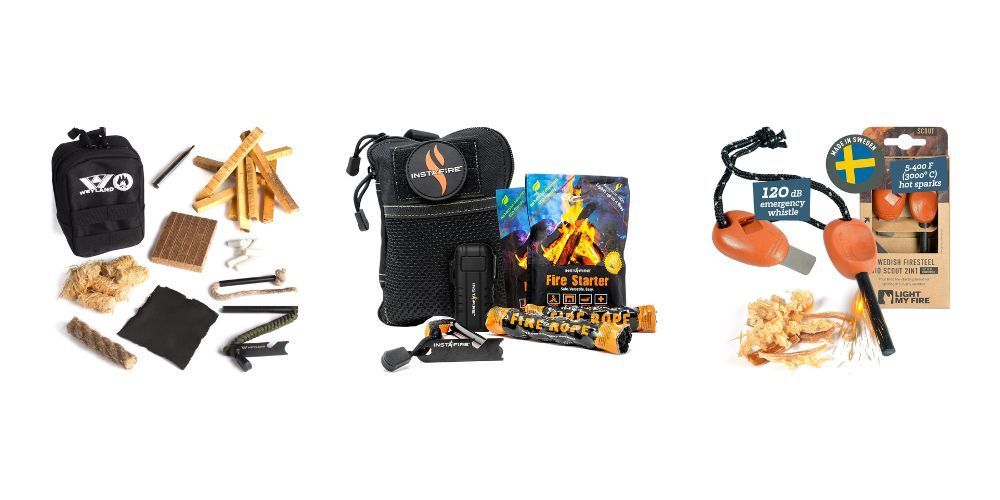Ultimate Guide to Nutrition for Long Distance Trail Running: Tips for Optimal Performance
September 2, 2024
Long-distance trail running demands more than just grit and stamina; it requires a well-planned nutritional strategy to keep energy levels high and ensure swift recovery. For many trail runners, hitting a wall mid-run or struggling with lingering fatigue is all too common, making it clear that optimizing what you eat can make or break your performance.
In crafting this comprehensive guide, we collaborated closely with nutritionists and seasoned trail runners to bring you expert-backed advice. You'll find practical tips ranging from the importance of consulting a nutritionist early on, to gradually incorporating nutrient-rich foods into your diet. By giving your body the right fuel, you'll be better prepared for those challenging miles ahead.
When preparing for long distance trail running, it is crucial to focus on proper hydration and fueling. Consuming easily digestible carbohydrates such as gels and small amounts of fruit like bananas during the race, as well as staying adequately hydrated, can help sustain energy levels and prevent nausea or headaches. Additionally, incorporating tips from experienced runners and consulting a nutritionist familiar with endurance sports can provide valuable insights for optimizing performance during ultra events.

Preparing for Long Distance Trail Running
Stepping into the world of long-distance trail running requires thorough preparation, not just in terms of physical training but also in adjusting your nutritional plan. To achieve optimal performance, it's crucial to take a deliberate approach towards preparing your body for the intense physical and mental demands ahead.
Two months before lacing up your running shoes for that significant trail run, involving a nutritionist in your preparation can be game-changing. This professional guidance can be pivotal in optimizing your performance on the trails by tailoring a dietary plan specifically suited to your personal health metrics, dietary preferences, and running objectives, ensuring you receive the right balance of macronutrients, vitamins, and minerals to sustain you during those long runs. Together with a nutritionist, you can design a customized plan that gives you an edge when it comes to energy levels and muscle recovery.
In parallel with consulting a nutritionist, ramping up the intake of nutrient-rich foods like whole grains, lean proteins, fruits, and vegetables should become a priority as part of this preparatory phase. This gentle adjustment period allows your body to adapt to the increased nutritional demands required to support long-distance trail running without inducing any digestive discomfort.
As you adjust your diet, leverage your training runs to experiment with different foods and snacks—a valuable opportunity to understand what works best for YOUR body. Utilize this time to grasp how different foods affect your energy levels and overall well-being during running. However, refrain from introducing new foods on race day to avoid unexpected reactions or digestive issues that hinder performance.
These preparatory steps are designed to systematically fine-tune your body’s response to nutrition in order to set yourself up for success on race day.
With a strategic nutrition plan in place, let's now turn our attention to the essential components of a balanced diet for long-distance trail running. Understanding how specific nutrients contribute to performance can be the game-changer on race day.
Balanced Diet Essentials
Fueling your body with the right nutrients is vital to achieving peak performance and recovery during long distance trail running. Your nutrition plan needs to provide adequate energy to sustain endurance, support muscle repair and recovery, and ensure overall health. Let's break down the key components of a balanced diet essential for long distance trail running.
Carbohydrates: The Powerhouse of Energy
Carbohydrates play a crucial role in providing energy during endurance activities. As a trail runner, 60-70% of your daily caloric intake should come from carbohydrates. However, it's important to focus on complex carbohydrates like sweet potatoes, quinoa, and brown rice. These foods release energy slowly, preventing blood sugar spikes while providing sustained energy levels throughout your run.
It's like fueling up your car before a long road trip with high-quality gasoline that keeps the engine running smoothly, avoiding sudden surges and sputters on the highway. When you opt for complex carbs, your body receives a steady stream of fuel, ensuring you have the stamina to conquer those challenging trails without crashing midway due to fluctuating energy levels.
Protein: Your Body's Repair Mechanism
After strenuous runs, your muscles bear the brunt of the activity. Including 15-20% of lean proteins such as chicken, fish, tofu, and legumes in your diet is essential. These foods contain amino acids that aid in repairing the tiny muscle tears incurred during intense runs. Proper protein intake promotes muscle recovery, reduces soreness, and strengthens your body for subsequent runs.
Think of protein as the construction crew that arrives after a storm to repair any damage to your body’s infrastructure. It works silently behind the scenes, mending torn muscle fibers so you can hit the trails again at full strength.
Healthy Fats: Sustaining Endurance
Healthy fats are essential for long-lasting energy and overall health in long distance trail running. Aim to include 20-25% of healthy fats from sources like avocados, nuts, and seeds in your diet. These fats provide lasting energy reserves while promoting heart health and aiding in vitamin absorption.
Consider healthy fats as the slow-burning embers of a campfire that keep you warm throughout the night. They provide sustained energy without sudden spikes or crashes, ensuring you have a reliable source of fuel during prolonged runs without compromising overall well-being.
Understanding the significance of these balanced diet essentials is pivotal in optimizing your performance as a long distance trail runner. It's not just about eating; it's about fueling your body strategically to tackle those tough terrains with power and resilience.
These nutritional principles form the foundation for maximizing your performance, but timing is equally critical. Let's now explore the art of timing your nutrition before, during, and after a run to unleash your full potential on the trails.

Timing Your Nutrition: Before, During, and After a Run
Timing is everything, especially when it comes to fueling your body for a challenging long-distance trail run. Here's how to optimize the timing of your nutrition before, during, and after the run.
Pre-Run: Fueling Up
It's crucial to eat the right meal at the right time before setting off on a long run. Give your body enough time to digest and store energy so that you have enough fuel to sustain you throughout the run. Aim for a meal rich in complex carbohydrates and moderate in protein about 2-3 hours before you start. This could be a bowl of oatmeal topped with a banana and a spoonful of almond butter. Complex carbs like oatmeal provide a steady energy release, while the banana offers natural sugars for quick energy. The added protein from almond butter helps in muscle repair and maintenance.
The reason for consuming complex carbohydrates is that they break down more slowly than simple sugars like those found in candy or soda, providing a steady source of energy. Protein is essential for muscle repair and growth, which can help reduce muscle soreness both during and after exercise. It's important to avoid heavy or high-fat foods close to your run as they can lead to discomfort or cause gastric distress during the activity.
During Run: Energy Sustainability
For runs lasting more than an hour, it's essential to maintain your energy levels with regular consumption of easy-to-digest snacks. These can include items such as energy gels, dates, or energy chews. These snacks should provide around 30-60 grams of carbohydrates per hour to help maintain your energy levels. Carrying these snacks along ensures you have access to quick glucose boosts while running without overloading your digestive system.
Remember: Hydration is equally important during this time. Intake of water or electrolyte beverages at regular intervals helps maintain proper hydration levels.
Ensure that you experiment with different types of snacks during training runs to see which ones work best for you personally – what sits well with your stomach and provides good energy.
Post-Run: Recovery and Repair
After completing your run, don't forget about recovery. Consuming a snack within 30 minutes post-run is crucial for replenishing glycogen stores and repairing muscles. This snack should ideally contain a mix of protein and carbohydrates. A protein smoothie with fruits and a scoop of protein powder can be an effective choice as it combines easily digestible nutrients for optimal recovery.
An example of an effective post-run snack could be a smoothie made from coconut water, spinach, banana, chia seeds, and vanilla protein powder. Coconut water provides hydration and natural sugars, while spinach adds critical nutrients like iron and vitamins that may have been lost during the run.
Understanding the significance of timing your nutrition before, during, and after a run can make a substantial difference in your performance and recovery. By ensuring you adhere to these nutritional strategies, you're taking essential steps towards optimizing your running experience.
With solid nutrition fundamentals laid out, let's now explore another crucial aspect of long-distance trail running—strategies for effectively managing hydration during endurance runs.

Hydration Strategies for Endurance
Hydration is a critical aspect of long-distance trail running. It significantly impacts performance, recovery, and overall well-being.
Before hitting the trails, it's essential to ensure our bodies are well-hydrated every day. Consuming at least 3 liters (or about 13 cups) of water is a good target for most individuals. Proper hydration ensures that our body is functioning optimally, providing a solid foundation for the run.
During the run, staying hydrated by carrying a hydration pack or water bottles is imperative. It's crucial to drink small amounts at regular intervals, aiming for about 500-700 ml of fluid per hour, which may vary depending on factors such as heat and sweat rate. Incorporating electrolyte tablets can help maintain the body's electrolyte balance, especially during longer runs when salt loss through sweat becomes more significant.
For example, in hot and humid conditions with higher sweat rates, increasing fluid intake and including electrolyte supplements becomes even more critical to prevent dehydration and maintain optimal performance.
Importance of Post-Run Hydration
After a long-distance trail run, rehydration is key to kick-starting the recovery process. Replenishing lost fluids and minerals facilitates muscle repair and rebuilding. Combining water with an electrolyte drink helps replace essential minerals lost through sweating. Coconut water is a natural alternative loaded with potassium and magnesium—making it an excellent choice for post-run rehydration due to its natural electrolyte content.
By focusing on proper daily hydration before a run, maintaining hydration levels during the run, and effectively rehydrating post-run, you're setting yourself up for success on the trail. Hydration plays a central role in optimizing performance, promoting recovery, and ensuring an enjoyable long-distance trail running experience.
Now let's dive into the essential nutrients that will fuel your long-distance trail runs to greater heights.
Key Nutrients for Performance
When it comes to long-distance trail running, the right nutrients can truly make a significant difference in your performance and recovery. Let's start with iron. Iron is crucial for transporting oxygen in the blood, particularly for long-distance runners, especially women, thus consuming iron-rich foods is essential to prevent fatigue.
Lack of iron prevents enough hemoglobin production in the blood, leading to anemia. Anemic runners may experience decreased endurance and find it harder to breathe due to reduced oxygen-carrying capacity in their blood, resulting in greater fatigue during runs and slower recovery afterward. To avoid this, incorporating iron-rich foods such as spinach, lentils, and red meats into your diet is essential.
Imagine iron as the fuel that powers your muscles. Without enough of it, you'd be trying to run on empty! It's no wonder that maintaining the right iron levels is key for energy and endurance during long-distance runs.
Next up we have calcium and vitamin D. These play a crucial role in maintaining bone health, which is absolutely essential for impact resistance on trails. Calcium-rich foods like dairy products or leafy greens are excellent sources, while vitamin D aids calcium absorption.
Whenever you're tackling long distances on trails, your bones have to bear the impact of each step you take. Weak bones are more prone to stress fractures or other injuries. By consuming these nutrients regularly, you're investing in a strong skeletal structure that can hold up to the rigors of trail running.
Think of calcium and vitamin D as the building blocks that strengthen your body's foundation and protect against wear and tear on rough terrain.
Lastly, magnesium is an often-overlooked nutrient that plays a critical role in muscle function and sleep quality. Since both muscle recovery and quality sleep are essential for long-distance runners, incorporating magnesium-rich foods into your diet becomes crucial.
Magnesium not only helps with muscle relaxation after intense exercise but also contributes to better sleep quality. It's essentially a natural muscle relaxant that aids recovery by reducing muscle cramps and improving overall muscle function.
Picture magnesium as your body's handy repair tool—after a long trail run, it works tirelessly behind the scenes to ensure your muscles recover adequately so you can hit the trails feeling refreshed again.
Ensuring you get sufficient iron, calcium with vitamin D, and magnesium ensures that your body has what it needs to perform optimally during long-distance trail running while promoting effective recovery after those grueling runs. These nutrients are key players in keeping your body in top form throughout your running journey.
Now armed with comprehensive knowledge about vital nutrients for optimal performance in long-distance trail running, we're ready to explore the next important aspect—top trail snacks for runners.
Top Trail Snacks for Runners
When you're hitting the trail for a long-distance run, having the right snacks can make all the difference. Not only do you need to fuel your body for endurance and energy, but you also want something that's easy to carry and won't weigh you down. Let's explore some top choices that can keep you going strong during those long runs.
Nuts and Seeds: Power-packed Nutrition
Nuts and seeds are like the superheroes of trail snacks, packed with protein, healthy fats, and fiber. They provide slow-burning energy that keeps you going mile after mile. Almonds and walnuts are great choices because they're nutrient-dense and can keep you feeling full. Chia and flax seeds offer an extra boost of omega-3 fatty acids and are easy to sprinkle over your favorite snacks.
Additionally, the fiber in nuts and seeds helps regulate your digestion, keeping you comfortable during your run without any unexpected bathroom breaks.
Energy Bars: Convenient and Effective
Energy bars may seem simple, but they're incredibly useful for long trail runs. Look for ones with natural ingredients like brown rice syrup, oats, and honey. These provide a quick source of carbohydrates without any added sugars or artificial additives. Quality options from brands like KIND or RXBAR are perfect for fueling your run without weighing you down.
The convenience of energy bars cannot be overstated. They're easy to carry, can be eaten on the go, and often come in a variety of flavors to suit your taste preferences.
Fruit: Natural Energy Boosters
Dried fruits are a go-to choice for many runners due to their natural energy-boosting properties. Options like apricots, raisins, or figs provide quick carbohydrates that are easy to digest—a crucial factor when you're on the move. Plus, they're rich in essential nutrients such as potassium and antioxidants.
Imagine biting into a juicy piece of dried fruit while on a long run— it's not only delicious but it's also an instant energy boost that helps keep up your pace.
Homemade Trail Mix
Creating your own trail mix allows you to customize your snack exactly how you like it. Including whole-grain cereals, dried fruits, nuts, and a touch of dark chocolate gives you a balanced combination of carbohydrates, healthy fats, and a hint of sweetness. This personalized blend provides sustained energy while satisfying your taste buds along the way.
Personalization is key here—by creating your own trail mix, you can cater to your specific nutritional needs while ensuring that each bite is enjoyable.
With these top trail snacks by your side, you have the fuel you need to power through those long-distance runs with ease and enjoyment.
Having the right nutrition strategy is essential for achieving optimal performance during long-distance trail running. By incorporating these top trail snacks into your regimen, you can ensure that your body is fueled for success, mile after mile.
What are the best foods to eat before a long-distance trail run?
Eating the right foods before a long-distance trail run is crucial for sustained energy and performance. Aim for a balanced meal 2-3 hours before your run, focusing on complex carbohydrates, lean proteins, and healthy fats. Foods like oatmeal with fruit, whole grain toast with almond butter, or a quinoa salad with vegetables and grilled chicken are excellent options. These foods provide slow-releasing energy and help maintain stable blood sugar levels throughout your run. Avoid high-fiber and high-fat foods right before the run, as they may cause digestive discomfort.
How should I hydrate during a long-distance trail run?
Proper hydration is vital during long-distance trail runs to prevent dehydration and maintain performance. Start by hydrating well before your run, drinking 16-20 ounces of water 2-3 hours beforehand. During the run, aim to drink about 4-8 ounces of water every 20-30 minutes. For runs longer than 60-90 minutes, consider adding an electrolyte drink or supplement to your hydration plan to replenish lost sodium and other minerals. Tailor your hydration strategy to the weather conditions, altitude, and your sweat rate, ensuring you don’t under or overhydrate.
What should I eat during a long-distance trail run to maintain energy?
During long-distance trail runs, it’s essential to fuel your body with easily digestible carbohydrates to maintain energy levels. Portable snacks like energy gels, chews, or bars are convenient and provide a quick source of glucose. Some runners prefer whole food options like bananas, dried fruit, or small portions of peanut butter sandwiches. The key is to consume 30-60 grams of carbohydrates per hour, starting 30-45 minutes into your run. Experiment with different foods during training to find what works best for your digestive system and energy needs.









